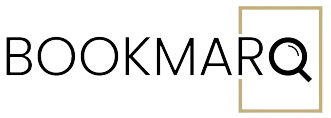This week, I leave for two weeks across South Korea. Let’s disregard the fact that I don’t have hotels booked for over half the nights I’m there. In fact, the only thing I have “booked” are these book recommendations. I have yet to decide if I’m going to Busan or Jeju, completely opposite directions of one another. Did you know that Google Maps doesn’t work in Korea? That they use their own platform, Naver, which is solely in Korean? I didn’t! You’d think I’d be concerned that I can’t even get it to download on my phone. My Hangul is worse than a toddler’s. Let’s hope the eSim I purchase upon landing alleviated these technical challenges.
Any sane traveler might find my manner of adventure utterly insane, to which I’d agree. Years of consulting, living out of a suitcase, and learning a city via the TikTok algorithm prepared me for this. If I’ve already found BlackPink’s manicurist (and secured an appointment!). I can book a hotel and learn a new navigation system. My preparation for the trip has not been futile. I’ve spent the past year plus reading South Korean authors, and the education goes much deeper than communicating over Kakao Talk. These books spoke directly to my soul in a language I didn’t know I was fluent in. After reading each of them, I’ve emerged as a new version of myself. I’m more attuned to my priorities, my goals, and my weaknesses. I love a book that makes me stop reading so I can think. Ponder.
I cannot guarantee that these books will speak to your Seoul (get it?) the way they did mine. That is, unless your Midheaven also runs tangential to Busan. But each of these books are well-written, entertaining, and appetizing. Literally. I’ve learned how to make new Korean recipes because the food sounds so delicious in each of them. The countdown to street tteokbokki begins, but first – some of South Korean book recommendations!
Crying in H-Mart by Michelle Zauner
A memoir about growing up Korean American, losing her mother, and forging her own identity. Michelle Zauner tells of growing up one of the few Asian American kids at her school in Eugene, Oregon; of struggling with her mother’s particular, high expectations of her; of a painful adolescence; of treasured months spent in her grandmother’s tiny apartment in Seoul, where she and her mother would bond, late at night, over heaping plates of food.
As she grew up, moving to the East Coast for college, finding work in the restaurant industry, and performing gigs with her fledgling band—and meeting the man who would become her husband—her Koreanness began to feel ever more distant, even as she found the life she wanted to live. It was her mother’s diagnosis of terminal cancer, when Michelle was twenty-five, that forced a reckoning with her identity and brought her to reclaim the gifts of taste, language, and history her mother had given her.
GoodReads Rating: 4.27
Pachinko by Min Jin Lee
In the early 1900s, teenaged Sunja, the adored daughter of a crippled fisherman, falls for a wealthy stranger at the seashore near her home in Korea. He promises her the world, but when she discovers she is pregnant—and that her lover is married—she refuses to be bought. Instead, she accepts an offer of marriage from a gentle, sickly minister passing through on his way to Japan. But her decision to abandon her home, and to reject her son’s powerful father, sets off a dramatic saga that will echo down through the generations.
Richly told and profoundly moving, Pachinko is a story of love, sacrifice, ambition, and loyalty. From bustling street markets to the halls of Japan’s finest universities to the pachinko parlors of the criminal underworld, Lee’s complex and passionate characters—strong, stubborn women, devoted sisters and sons, fathers shaken by moral crisis—survive and thrive against the indifferent arc of history.
GoodReads Rating: 4.33

Eat a Peach by David Chang
In 2004, David Chang opened a noodle restaurant named Momofuku in Manhattan’s East Village, not expecting the business to survive its first year. In 2018, he was the owner and chef of his own restaurant empire, with 15 locations from New York to Australia, the star of his own hit Netflix show and podcast, was named one of the most influential people of the 21st century and had a following of over 1.2 million. Chang shares the extraordinary story of his culinary coming-of-age.
Growing up in Virginia, the son of Korean immigrant parents, Chang struggled with feelings of abandonment, isolation and loneliness throughout his childhood. After failing to find a job after graduating, he convinced his father to loan him money to open a restaurant. Momofuku’s unpretentious air and great-tasting simple staples – ramen bowls and pork buns – earned it rave reviews, culinary awards and before long, Chang had a cult following.
Momofuku’s popularity continued to grow with Chang opening new locations across the U.S. and beyond. In 2009, his Ko restaurant received two Michelin stars and Chang went on to open Milk Bar, Momofuku’s bakery. By 2012, he had become a restaurant mogul with the opening of the Momofuku building in Toronto, encompassing three restaurants and a bar.
Chang’s love of food and cooking remained a constant in his life, despite the adversities he had to overcome. Over the course of his career, the chef struggled with suicidal thoughts, depression and anxiety. He shied away from praise and begged not to be given awards. In Eat a Peach, Chang opens up about his feelings of paranoia, self-confidence and pulls back the curtain on his struggles, failures and learned lessons. Deeply personal, honest and humble, Chang’s story is one of passion and tenacity, against the odds.
GoodReads Rating: 3.90

To purchase any of these book recommendations on this list, check out my Amazon storefront: South Korean Authors.
To receive the latest updates on new blog posts, subscribe to our newsletter!











